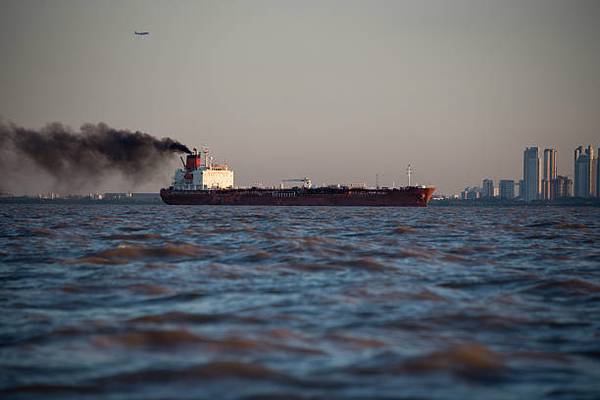IEA sees reduced share of fossil fuels in global energy mix by 2030
In its latest World Energy Outlook 2023, the International Energy Agency (IEA) has forecast the share of fossil fuels in global energy supply to decline from the current level of 80%, to 73% by 2030.
 PHOTO: A cargo ship emitting smoke. Getty Images
PHOTO: A cargo ship emitting smoke. Getty Images
The Paris-headquartered agency has noted a “phenomenal rise” of clean energy technologies that play an important role in today’s energy mix.
“The transition to clean energy is happening worldwide and it’s unstoppable,” said IEA’s executive director Fatih Birol. “It’s not a question of ‘if’, it’s just a matter of ‘how soon’ – and the sooner the better for all of us,” he added.
The agency estimates that heat pumps and other electric heating systems are outselling fossil fuel boilers globally, and investments in new offshore wind projects are three times more than that in new coal and gas-fired power plants.
"Taking into account the ongoing strains and volatility in traditional energy markets today, claims that oil and gas represent safe or secure choices for the world’s energy and climate future look weaker than ever,” Birol said.
IEA's outlook on China's oil demand
China, “which has an outsize influence on global energy trends,” is facing a shift in its energy mix as the country’s economy is undergoing structural changes, according to the IEA.
“China’s total energy demand is set to peak around the middle of this decade,” it says. The country’s continued growth and investment in clean energy have caused its fossil fuel demand and carbon dioxide (CO2) emissions to decline.
Key changes required to achieve the 1.5°C climate goal
According to the IEA, meeting the climate goals set in the Paris Agreement will still be difficult. The energy market watchdog has recommended five key initiatives that global economies need to adopt by 2030 for a smooth energy transition:
- Tripling global renewable capacity.
- Doubling the rate of energy efficiency improvements.
- Cutting down on methane emissions from fossil fuel operations by 75%
- Innovative, large-scale financing mechanisms to triple clean energy investments in emerging and developing economies.
- Introducing strict measures to ensure an orderly decline in the use of fossil fuels, including an end to new approvals of unabated fossil fuel-powered plants.
Meanwhile, rising geopolitical tensions in the Middle East due to the ongoing Israel-Hamas conflict have "refocused attention on energy security concerns," at a time when the world is contemplating the impact of a global supply shortage, added the IEA.
“The fraught situation in the Middle East comes 50 years after the oil shock, creating further uncertainty for an unsettled global economy that is feeling the effects of stubborn inflation and high borrowing costs,” the IEA said.
By Aparupa Mazumder
Please get in touch with comments or additional info to news@engine.online






